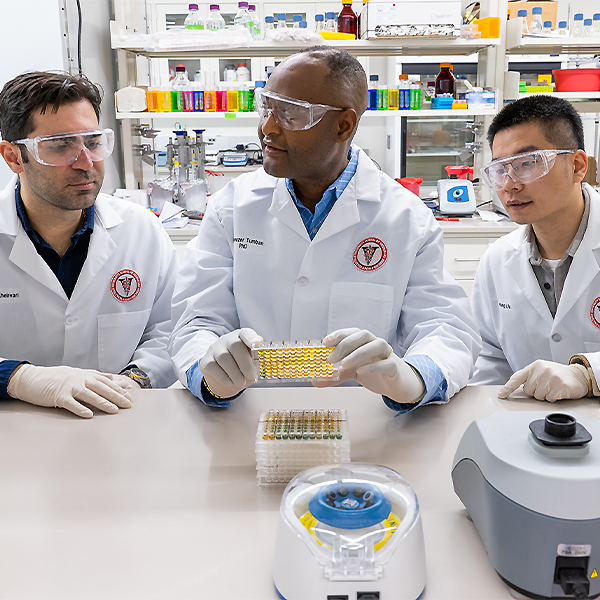
Texas Tech Students are Leading the Way in Discovering Interconnections to Solve Societal Challenges.
In August 2021, Texas Tech University opened the School of Veterinary Medicine in Amarillo, answering the call to provide veterinary medicine in rural and regional
communities. Just a few months later, the university stepped up to consider another
call – a collaborative solution to human, animal, and ecological challenges.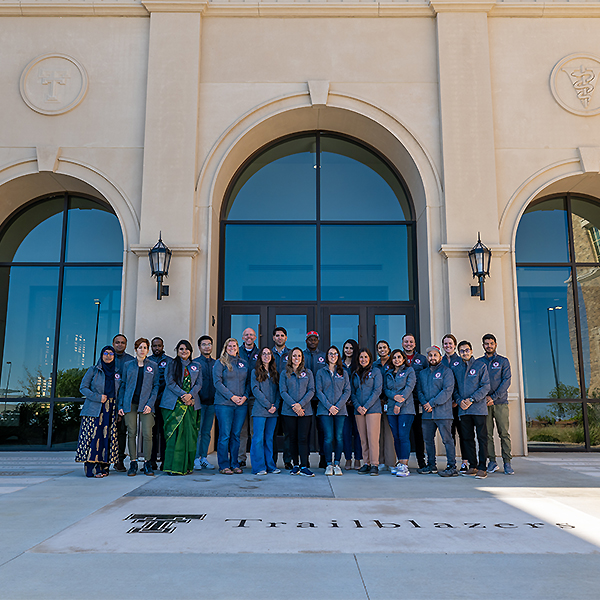
The answer to this call is the Ph.D. in One Health Sciences, the first such Ph.D. in the U.S.
One Health, the term to describe this three-pronged interdisciplinary approach, may be relatively new, but the concept is not. Throughout the last century, physicians and scientists from across the globe have sought to identify the links between human and animal medicine. In fact, the establishment of the Johns Hopkins School of Medicine in the 1890s was heavily influenced by a veterinary pathologist. By the late 2000s, and due in large part to an avian influenza pandemic, international health and governmental organizations added a third component – ecosystem understanding – to develop a multi-faceted strategy for stopping the spread of infectious diseases.
According to the U.S. Centers for Disease Control and Prevention, more than 60% of
known infectious diseases in humans can spread from animals to humans, and 75% of
novel or emerging diseases originate within animal populations. Based on these statistics,
School of Veterinary Medicine Dean Guy Loneragan says, “The need for One Health thinking to respond to infectious disease emergencies
is clear.”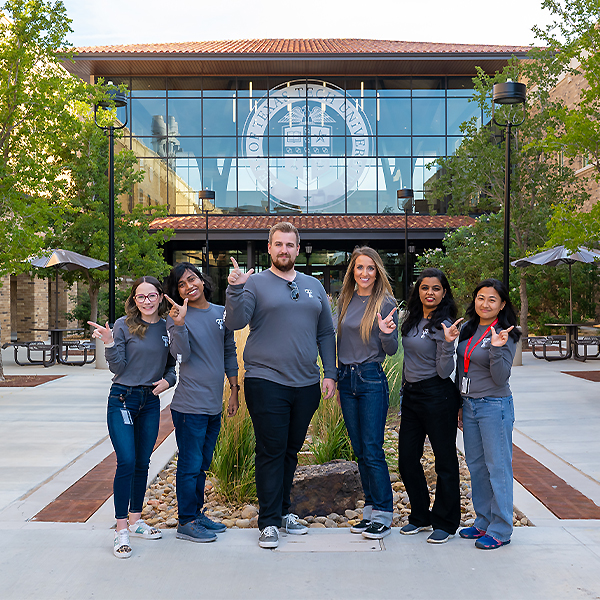
As the school’s impetus for launching the premier One Health doctoral program in the nation, Loneragan, who prefers to go by Guy, has spent the last two decades studying how animal, human and ecosystem health are interconnected.
“The sort of ‘Aha’ moment happened while pursuing graduate training at Colorado State University,” Guy shared. “I had learned about zoonoses but then heard a professor talk about how his family was affected [by an E. coli outbreak] one time. At that time, my world view of my role as a veterinarian opened up and the importance of public health and then One Health became clearer. In time, I would come to see that broader world view as providing an opportunity to identify more creative solutions to a problem.”
In his current work, Guy is interested in the mechanisms by which salmonella moves within and between animals.
“We know of salmonella in terms of making us sick, but there are lots of types of
salmonella that don’t seem to make people or animals sick,” he said. “There is so
much more to uncover, and it lends itself to a One Health investigation.”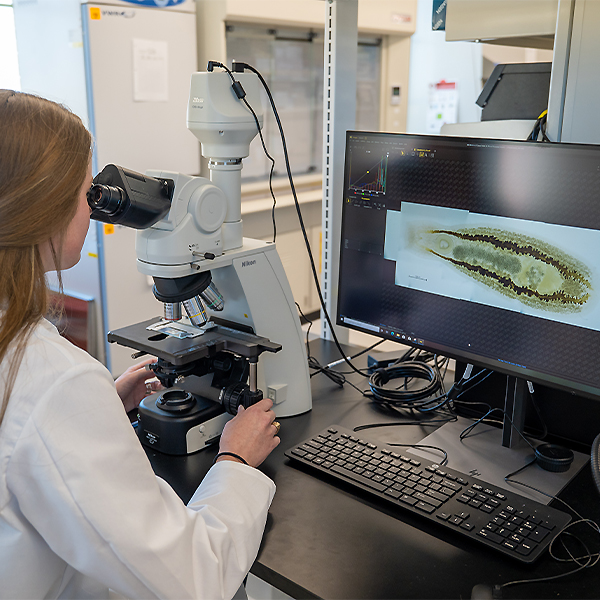
When the Ph.D. in One Health Sciences program set out in August 2022, the 28 students in the inaugural class represented the largest Ph.D. program launch in Texas Tech history. Among those students is SaraBeth Boggan. SaraBeth doesn’t remember a time when she wasn’t aware of the One Health concept. Growing up, she wanted to be a veterinarian and in college chose to study wildlife science. Ultimately, parasites and disease ecology drew SaraBeth’s interest.
“We discuss a lot about why human movement or urban development impacts animals or how animal behavior and population changes could and should impact management strategies, but wrapping up how it’s all connected and how they impact each other through disease transmission and management decisions, that’s my thing,” SaraBeth said.
SaraBeth’s specific research is on the raccoon roundworm, a zoonotic parasite – meaning people can get it from animals – that has some rather serious human health concerns.
“We are currently evaluating the infection prevalence of raccoons in the Panhandle and West Texas and will then move into evaluating infection in adult humans,” SaraBeth said.
Inaugural One Health Ph.D. student Tomas Lugo is making inroads to address another societal problem – drug efficacy and chemical impact in cancer treatment. Tomas’ project involves creating models that resemble living organisms, like cancerous tumors, and testing environmental factors in relationship to cancer.
“Throughout my career, working in either animal or human health, I was siloed in my department, looking at very specific programs,” Tomas said. “This program allowed me to venture outward and connect the gaps between different departments, helping to solve the bigger picture of animal, human and environmental health.”
Another Ph.D. student, Bailey Samper, believes that One Health solutions can be found in the numbers. As a master’s student, Bailey noticed most of her work had been strictly confined to agricultural business and economics. While she loved economics, she recognized she also had an interest in animal health and food animal supply chains.
“Food animal supply chains foster multiple pathways of One Health challenges, such as protein availability, food security, zoonotic diseases and antimicrobial resistance,” Bailey explained. “The opportunity to employ economic reasoning to tackle such challenges prompted my interest into this field.”
Following graduation, Bailey plans to use her Ph.D. to pursue a research position
in academia or government.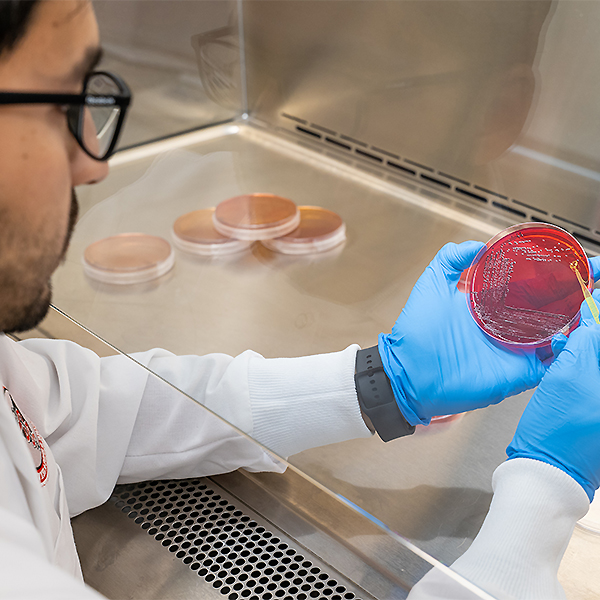
As of the fall of 2023, the Ph.D. in One Health Sciences program includes 31 students from 15 countries. Bringing a local perspective from their corners of the world, these students are stretching Texas Tech’s impact and developing strategies to solve societal challenges all over the globe. From global, to regional, to local, One Health discovery is happening right here at Texas Tech.
